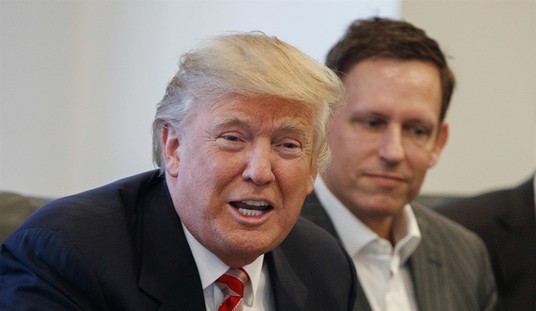Obama stenographer Charles Blow had some rare moments of insight in his latest New York Times column on the “Black Lives Matter” movement and the GOP. As usual, however, Blow confused the cart for the horse and thus offered the complete wrong solution for the problem he is attempting to solve.
Blow noted, correctly, that a large driver of hostile interactions between police and black citizens is increased pressure from municipalities on police to become revenue generation machines:
Look at it this way: Many local municipalities experience budgetary pressure. Rather than raise taxes or cut services in response, things that are often politically unpalatable, they turn to law enforcement and courts to make up the difference in tickets and fines. Some can also increase the number of finable offenses and stiffen the penalties.
Officers, already disproportionately deployed and arrayed in so-called “high-crime” neighborhoods — invariably poor and minority neighborhoods — are then charged with doing the dirty work. The increase in sheer numbers of interactions creates friction with targeted populations and ups the odds that individual biases will be introduced.
Without fail, something eventually goes horribly wrong.
To Blow’s credit, he at least raises the possibility that cutting services might be the answer to the problem, but the problem is that he places it on equal footing with the possibility of raising taxes, which of course the GOP opposes.
The problem is that we don’t have to really wonder whether falling revenues or bloating budgets are causing the widening gap between what cities/counties take in and what they spend.
A survey of major metropolitan budgets reveals that even though the economy by any measure suffered through a period of severe downturn followed by a relatively weak recovery from the period of 2009-2014, most major metropolitan expense budgets increased at a steady rate during that time. In spite of forecasted drops in revenue from ordinary forms of taxation, budgets rose. In many cases, cities attempted to make up shortfalls at least in part by demanding that their police departments close the gap with increased “miscellaneous revenue,” or fines and citations.
For instance, the City of New York (where Blow lives, and which is dominated politically by the liberal Democrats that Blow supports) had a projected expense budget for FY 2009 of $59.17 billion, with expected total tax revenues of $36.32 billion. In FY 2010, New York City had a projected expense budget of $59.48 billion, despite the fact that total tax revenues were projected to fall to $34.31 billion due to the economic slowdown. “Miscellaneous revenues,” however, were expected to rise from $5.67 billion to $5.97 billion, showing a trend that would continue throughout subsequent years. Keeping in mind that those “miscellaneous revenues” include increased issuance of petty citations and tickets, it is appalling that the projections showed an increase. The policy, the hidden tax, is deliberate.
By FY 2015, New York City’s expense budget had grown to $75.06 billion, an increase of 26% over this time period. Meanwhile, tax revenues were projected at a mere $48.60 billion, illustrating a widening gulf between what the City planned to bring in via taxes and what it planned to spend. Note – The city’s tax revenues have been steadily increasing, just not at the same rate as its budget. The city has accordingly applied the revenue generation squeeze to every department including the police, which has seen an increase of traffic-generated fees alone of approximately 30% since 2009. Overall, New York Police are expected to collect between $800 – $900 million in tickets each year, and the citizens of New York suffer directly as a result of this coercive budget padding.
The City of Los Angeles is, if possible, even more dominated by a liberal Democrat political machine than the City of New York – and it relies even more on collections from police-issued citations to support its budget. Per the City of Los Angeles’ website, over ten cents out of every budget dollar spent by the city in the budget year 2010-2011 came from collections of “other fees and fines” – i.e., police citations. The following year, “other fees and fines” constituted a full 11 cents out of every dollar spent by the city. Overall, the city consistently expects its police department to bring in approximately 15% of their budget through the collection of either parking fines or other fines. However, the city’s overall budget has ballooned in the past four years from $6.75 billion in 2010-2011 to $8.12 billion in 2014-15, an increase of over 20%, meaning that the Los Angeles Police Department has been expected to increase ticket revenues by the same proportion in that time frame – that is, by 20%.
An examination of metropolitan budgets across America shows the same tale. In Chicago, revenue from fines in the city’s budget increased by almost 50% during a ten year period, from $193 million in 2003 to $307 million in 2012. The City of Philadelphia budgeted for a single-year increase of 13% in revenue from traffic citations in 2015, and an astounding single-year 28% increase in other court costs, fines, and fees for its First Judicial Circuit.
In each of these cases, the problem was not that the city wasn’t bringing in enough tax dollars – in fact, the budgets reflected an expectation that revenues would remain static or would slightly increase. The problem was that the city refused to accept even these revenue increases as adequate and wanted to provide even more big government programs than their burgeoning tax collections could actually afford. So of course the police were sent out as the armed tax collectors of big government liberalism, to extort fines and fees from the impoverished and minorities, a situation which directly resulted in the death of Eric Garner, who was criminally attempting to deprive the City of New York of several cents of tax revenues on cigarettes.
The problem is not that the GOP can’t relate to the “Black Lives Matter” movement – the problem is that the issues the movement seeks to address are directly caused by big government liberalism.














Join the conversation as a VIP Member